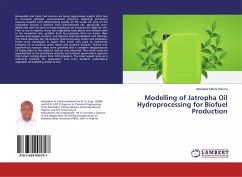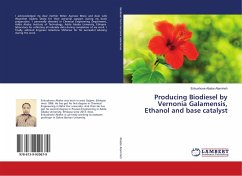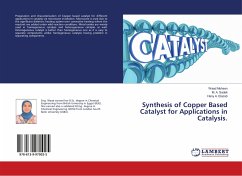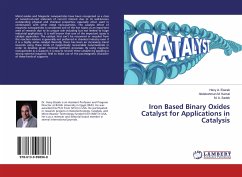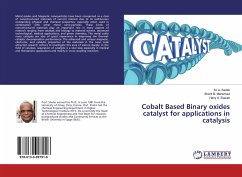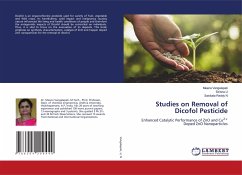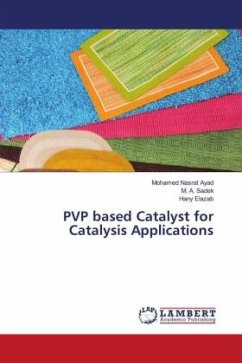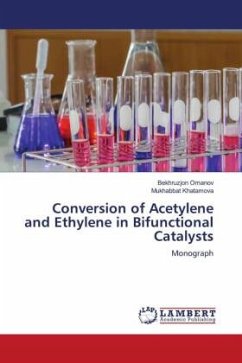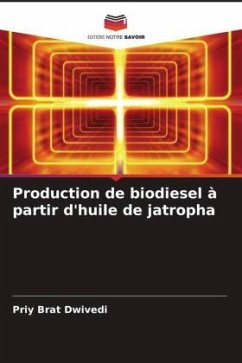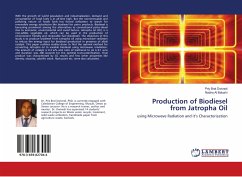
Production of Biodiesel from Jatropha Oil
using Microwave Radiation and it's Characterization
Versandkostenfrei!
Versandfertig in 6-10 Tagen
27,99 €
inkl. MwSt.

PAYBACK Punkte
14 °P sammeln!
With the growth of world population and industrialization, demand and consumption of fossil fuels is at all-time high. But the nonrenewable and polluting nature of fossils fuels has forced civilization to search for renewable energy substitutes like biodiesel for petro products. Biodiesel is becoming prominent among the alternatives to conventional petro-diesel due to economic, environmental and social factors. Jatropha oil (JO), is a non-edible vegetable oil, which can be used in the production of environment friendly and renewable fuel (biodiesel). The objectives of this study is to produce ...
With the growth of world population and industrialization, demand and consumption of fossil fuels is at all-time high. But the nonrenewable and polluting nature of fossils fuels has forced civilization to search for renewable energy substitutes like biodiesel for petro products. Biodiesel is becoming prominent among the alternatives to conventional petro-diesel due to economic, environmental and social factors. Jatropha oil (JO), is a non-edible vegetable oil, which can be used in the production of environment friendly and renewable fuel (biodiesel). The objectives of this study is to produce biodiesel from Jatropha oil using microwave radiation to reduce the energy input for biodiesel production in presence of alkali catalyst. This paper outlines studies done to find the optimal method for converting Jatropha oil to useable biodiesel using microwave irradiation. The amount of catalyst is 0.4 w% and ratio of methanol to oil is 6:1 w/w and duration was 200 seconds for the optimal trans-esterification. Final product was characterized by GC results and few other properties like density, viscosity, calorific value, flash point etc. were also calculated.



